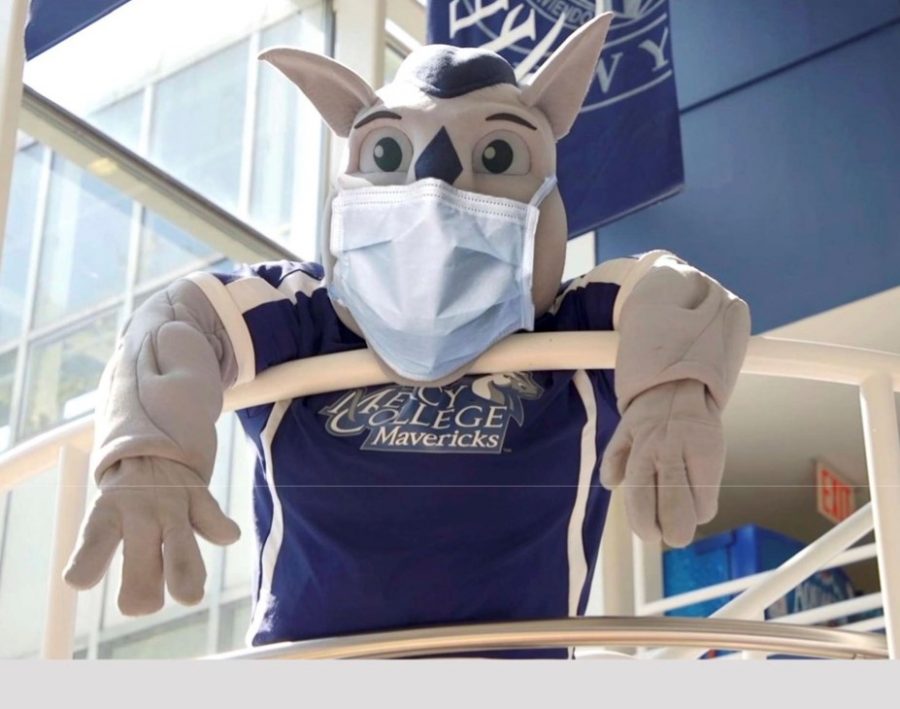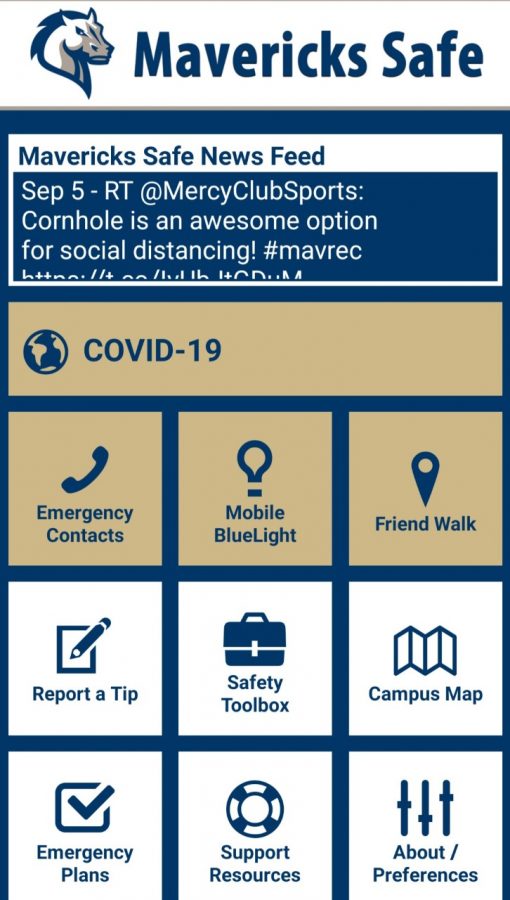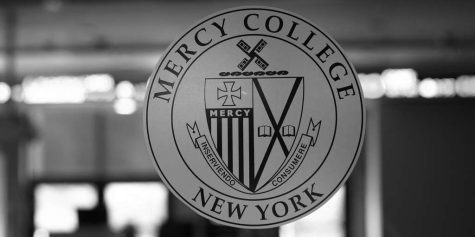Fall 2020: The Most Unusual Semester on Record
The fall semester will officially begin on Sept. 9. in what could potentially be the thick of the COVID-19 pandemic. Mercy College is diving faith-first into “the most unusual semester on record.”
School will be operating through various hybrid versions of in-person and remote teaching and learning in an attempt to follow social distancing guidelines while upholding quality of education.
Emotions are mixed in regard to Mercy’s decision to reopen.
Though the efforts that the college are taking is appreciated, some students, like 21-year-old Jessica Beaufort, believe that classes should still be conducted remotely.
Beaufort is a senior studying veterinary medicine and she uses public transportation regularly. She experiences firsthand just how many people fail to take COVID-19 seriously, including medical professionals.
“I’m honestly scared out of my mind,” Beaufort exclaims. “I’ve heard a few people discussing how those of us studying the sciences aren’t a major concern since we know the risks and we know how to take precautions. Yes, we’re studying medicine, but I think they may be putting a little too much faith in their students.”
In order for anyone – whether student, staff member, or visitor – to enter the campus, they are now required to use a new app called “Mavericks Safe” to conduct a self-assessed health screening, which will include a daily questionnaire required by New York State as part of its reopening guidelines.
The app is user-friendly, and amongst its many general safety-natured resources and emergency contacts, it has a section specifically reserved for all issues COVID-19. It was created with the intention of not only keeping a more precise record of the daily state of health of all who pass through, but also to offer the students and staff even a slight sense of reassurance that they aren’t unknowingly being exposed to the virus – if nowhere else, at least while they’re on Mercy grounds.
Yet, there is a skeptic. In Beaufort’s opinion, “It seems this is one of those times where the honor system isn’t going to work.”
Sophomore Jaelyn Martinez, 20, is a health science major studying to be a physician’s assistant. Her family experienced firsthand both a winning and a losing battle with the virus. Because she knows just how destructive it can be, she is concerned that some students won’t be honest about their state of health, and in turn, they’ll endanger others. She still feels that Mercy made the right choice in trying out the hybrid structure.
“As a health science student, it would have been very difficult for me to attend and do my labs strictly online, rather than have the opportunity to physically go to class,” she shares. “I hope it turns out well and that we are able to finish our semester in person.”
Martinez is of the belief that while the new procedures are inconvenient, accommodating accordingly is currently the only option.
While enforcing the use of proper personal protective equipment and adequate social distancing to preserve physical health, colleges are also being asked to assess the psychological and behavioral impact that the current conditions have on students.
Some colleges that started their fall semesters earlier than Mercy, have already been shut down because of students’ disobedience to social distancing guidelines. On a regular basis, going to college offers a new sense of freedom for students; it often has the reputation of opening up the door to rebellious actions. After months of being cooped up, possibly having the virus, losing loved ones, losing jobs, losing faith, and/or having been on a rollercoaster of emotions – there’s a good chance that some students will be even more unpredictable.
“Colleges may be able to control what happens on their own campuses, sometimes, but they can’t control what happens off campus, and given how fast this virus spreads, I don’t doubt that someone is going to ruin it for the rest of us, especially if they’re living on campus and trying to be popular over safe,” Beaufort says. “I think some students are going to go full Icarus and try to find a way around wearing a mask. It’s become almost a trend to be a rebel during the pandemic.”
For students who live on campus, new rules and guidelines require a lot of discipline. Students are now required to live with fairly isolated dorm room setups of two people at maximum. The campus is depending on all Mavericks to maintain the trust that has been put in them and act responsibly.
Tighter restrictions have been placed upon all residences which prohibit any and all outside guests – including commuter students – from even entering residence halls, and therefore prohibiting overnight visitors entirely as well. Mercy authorities have yet to determine the specific overall capacity for residences.
Without the normal social gatherings and events that would otherwise serve as ice breakers and stress relievers, the students are left with fewer outlets to calm their nerves and make them feel more comfortable away from their homes. Those who struggle with anxiety and depression may be faced with even more difficulties in this area.
Toward the end of the spring semester when COVID-19 had first picked up speed, behavioral science major Mujahed Alawadi, 23, not only had online classes to worry about, but he also had to try and keep a clear head while his mother fought the virus. It took a lot of patience, but he worked through it and has complete faith that Mercy will be able to pull it off again. He feels that the school has offered appropriate mental health support since the start of the pandemic, as they’ve shared tools remotely to offer their students a shoulder to lean on.
“Mercy is a great school. They sent many emails to the students to make sure everyone was confident with how things were going to look in the future with COVID-19,” he says. “I have not yet seen the new class structures, but I’m sure Mercy is organized and knows what is best for the people in the college.”
By the same token, not every student has the ability, know-how, or at this point, the mental capacity to access some online tools as readily as others. Some students hadn’t even realized that any remote services were being offered during the pandemic. Beaufort and Martinez speak for many when they say that services offered remotely may easily go unnoticed because of the students’ focus on everything else they now have sitting on their shoulders.
Kerlisha Broomes, 34, is another student who felt the wrath of the virus firsthand. Her father-in-law spent some time in the hospital, while her brother underwent several very serious emergency operations back in their country of Grenada, and neither of them was allowed to have any family visits for support during their fights. She has mixed thoughts when it comes to starting the school year during this pandemic.
“While I feel like New York has come a long way in eradicating the spread of COVID-19, I cannot account for the whereabouts of all Mercy students during the last two months and how it will affect us when learning in person on the scheduled days,” she says. “I also have my qualms about the remote learning implementation. As a wife, mother, professional, and student – it is a lot to juggle remotely.”
Great responsibility has been placed upon each and every member of the Mercy community. Now, more than ever before, it will be of utmost importance that both the students and the staff comply with the new regulations in order to make it through unscathed.
If you feel you need to speak to a professional about mental health, please visit Mercy’s digital counseling center.














